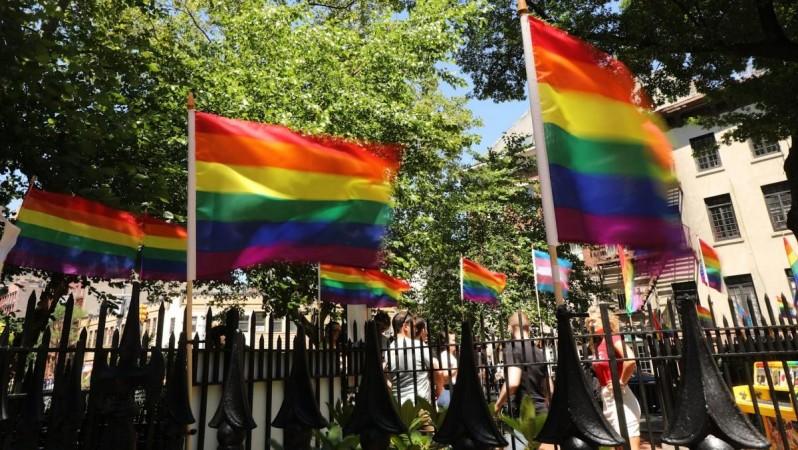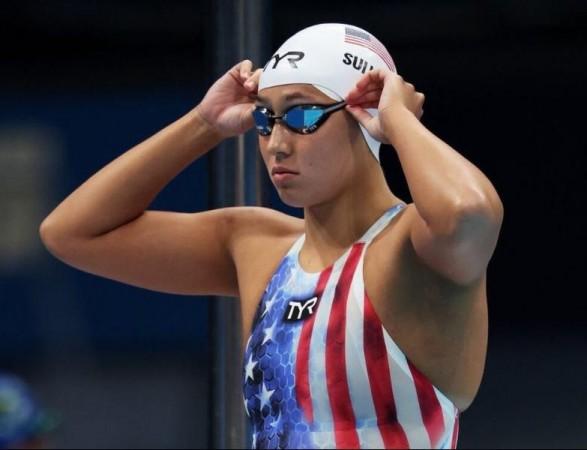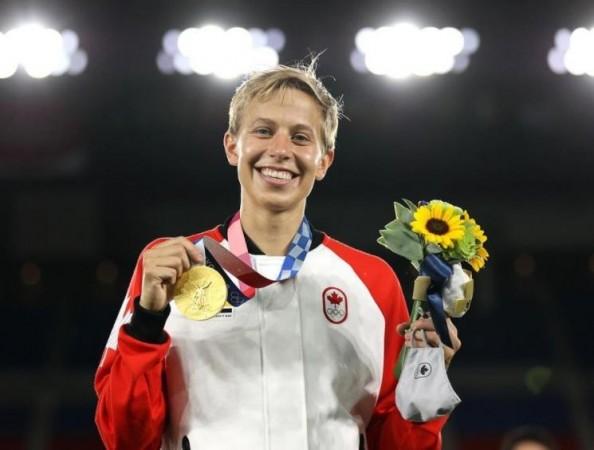Tokyo 2020 Olympics would go down the history for several reasons. For being held during a worldwide pandemic, opening and closing ceremonies that witnessed eeriness of an empty stadium, Olympians that stood together sharing gold and a common goal, champions who used the international platform to observe silent protest against social causes; and at last, for hosting, open transgenders and non-binary athletes, for the first time ever at a sports event that hugely identifies with male and female categories.

As reported by Outsports, the Tokyo 2020 Games witnessed participation from almost 182 publicly out LGBT+ and non-binary athletes at the Summer Olympic Games, more than triple the number who participated at the 2016 Rio Games. Outsports' list that includes players from across 30 countries, has only one openly gay Indian sportsperson, sprinter Dutee Chand.
Canadian swimmer Markus Thormeyer told Outsports, "Being able to compete with the best in the world as my most authentic self at the biggest international multi-sport games shows how far we've come on inclusion in sport. I'm hoping that by competing at these Games I can show the LGBTQ community that we do belong and we can achieve anything we put our minds to."

Olympic champs sending message of hope
One of the athletes who made waves at the Olympic Games earlier in July, Great Britain's Tom Daley, even reached out to the community right after winning Gold in the diving championship.
"When I was young, I always felt like the one that was alone and different and didn't fit in, and there was something about me that was always never going to be as good as what society wanted me to be," he said while taking to the podium, adding, "I hope that any young LGBT person out there can see that no matter how alone you feel right now, you are not alone, and you can achieve anything. And there is a whole lot of your chosen family out here ready to support you."
Britain's Tom Daley was joined by USA's Erica Sullivan who went on to speak openly about her identity, after winning a silver medal at the Games.
The Asian-American swimmer for USA had stated, "I'm multicultural, I'm queer and a lot of minorities in that sense, and that's what America is... Me getting to be on the podium in Japan as an Asian-American woman, and getting to take silver in a historical women's event for the first time as someone who likes women and identifies as gay is just so cool – it's awesome."
While Tom Daley and Erica Sully's presence at the games spoke of hope for the community at the popular world games, participation of New Zealand's weightlifter Laurel Hubbard brought in conflict and controversy at the event. 43-year-old Laurel Hubbard who was born male but began identifying as a female when she openly came out in 2013, trudged a tightrope at the Olympic Games being the first-ever transgender athlete to contest for weightlifting championship.

Speaking to the press post losing the game, she said, "I think that they (Olympic committee) reaffirmed their commitment to the principles of Olympianism. They've demonstrated, I think, that sport is something all people around the world can do. It's inclusive, it's accessible, and I think that's just really fabulous."
The athletes identifying as LGBT+ and non-binary persons at the event also included Canadian footballer and Olympics Champion Quinn who opened up about its non-binary identity publicly in September 2020 and doesn't use either male or female pronouns and prefers they/them. Kellie Harrington, Irish Boxer who won gold at the women's 60kg lightweight final has been in a steady 12-year relationship with her partner Mandy who is also a professional boxer.
The increase in participation from the community and shifting face of Olympic games is sure to pave newer and more inclusive rules lending and encouraging more sportspersons across the globe to come out confidently and inspire many others.
Helen Carroll, an LGBTQ sports advocate in a Wired.com article shared, "Sport can be a life-saver for transgender people, who are at high risk of suicide... They've been fighting themselves and feeling like they were in the wrong body, and sport gives them a place to be happy about their body and what it can do."

















